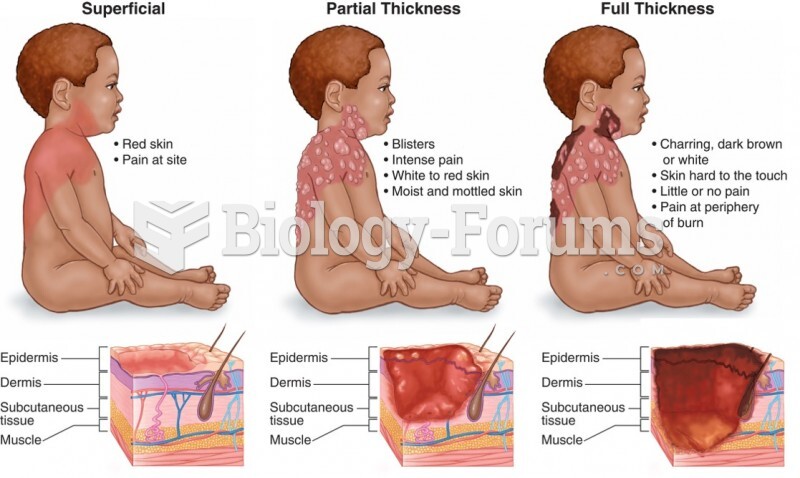|
|
|
Children with strabismus (crossed eyes) can be treated. They are not able to outgrow this condition on their own, but with help, it can be more easily corrected at a younger age. It is important for infants to have eye examinations as early as possible in their development and then another at age 2 years.
Approximately 70% of expectant mothers report experiencing some symptoms of morning sickness during the first trimester of pregnancy.
Asthma is the most common chronic childhood disease in the world. Most children who develop asthma have symptoms before they are 5 years old.
The lipid bilayer is made of phospholipids. They are arranged in a double layer because one of their ends is attracted to water while the other is repelled by water.
Today, nearly 8 out of 10 pregnant women living with HIV (about 1.1 million), receive antiretrovirals.
 Injecting an IV push (bolus) medication; C, another type of needleless syringe and needleless IV acc
Injecting an IV push (bolus) medication; C, another type of needleless syringe and needleless IV acc
 Deviancy training is a process by which antisocial peers encourage antisocial talk among friends, ...
Deviancy training is a process by which antisocial peers encourage antisocial talk among friends, ...





